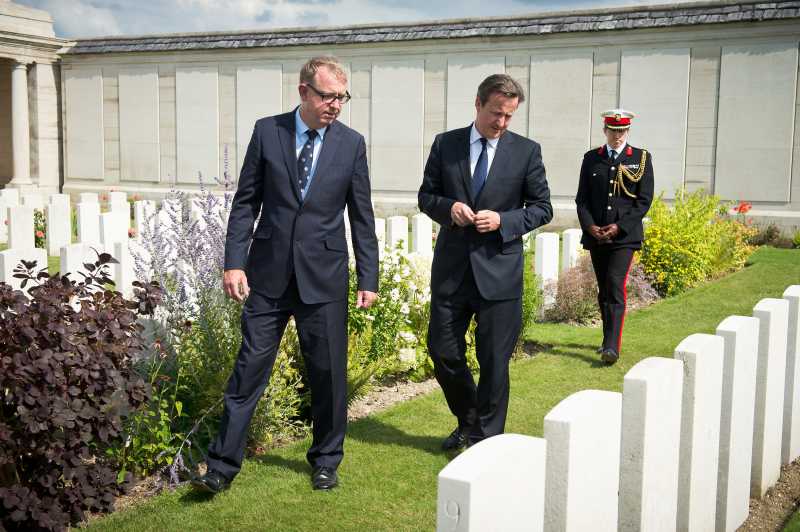
Islamic State jihadist militants could grow strong enough to target people “on the streets of Britain” unless action is taken, Prime Minister David Cameron has warned, BBC reported.
He said a “humanitarian response” to the rebel group was not enough and a “firm security response” was needed. The prime minister was writing in the Sunday Telegraph.
The militants, formerly known as Isis, seized a large band of territory across northern Iraq and Syria this summer. IS-led violence has driven an estimated 1.2 million Iraqis from their homes.
Kurdish forces, supported by US air strikes, are currently battling to retake Mosul dam from IS fighters in northern Iraq.
Mr Cameron writes: “True security will only be achieved if we use all our resources – aid, diplomacy, our military prowess – to help bring about a more stable world.
“If we do not act to stem the onslaught of this exceptionally dangerous terrorist movement, it will only grow stronger until it can target us on the streets of Britain.”
In June, Mr Cameron claimed that fighters from the group were plotting attacks against the UK – although the threat level has remained unchanged.
At the time, he said up to 400 British nationals were fighting alongside militant groups in Syria.
He added that several people had already been stopped from travelling to conflict zones, and preparing a terrorism offence abroad would become a crime under legislation to be put before Parliament in the next few months.
Downing Street later revealed that the UK security service had arrested 65 people suspected of Syria-related jihadist activities during an 18-month period – including 40 in the first quarter of this year.
Earlier, Britain has welcomed a UN resolution designed to weaken Islamic State militants in Iraq and Syria.
The United Nations Security Council gave unanimous approval to the document, which was drawn up by the UK.
It backed sanctions on individuals recruiting, financing, supplying weapons, or fighting for Islamic State (IS) and linked groups.
The UK Ministry of Defence has revealed that its Rivet Joint surveillance aircraft has been operating in Iraq.
The reconnaissance plane had been operating in the region for the last few weeks, a spokeswoman said, helping to “build an understanding of the humanitarian situation… and the associated [Islamic State] threat”.
“The intelligence and insight it has provided have guided our humanitarian efforts giving us an accurate picture of what is going on the ground so that we could best deliver aid to the Yazidi people,” she added.